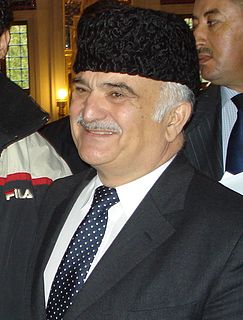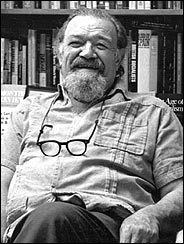A Quote by Alcee Hastings
Mr. Speaker, I am deeply concerned that many regions of this world are suffering from the effects of armed conflicts with religious aspects. I believe that the differences of faith are not the real reason for these conflicts.
Related Quotes
Throughout history, religious differences have divided men and women from their neighbors and have served as justification for some of humankind's bloodiest conflicts. In the modern world, it has become clear that people of all religions must bridge these differences and work together, to ensure our survival and realize the vision of peace that all faiths share.
The religious conflicts of the Reformation era were never simply and only about religion, because religion during this era as in the Middle Ages that preceded it, informed and was meant to inform every domain of life. Violence involving religion and touching other areas of life took many forms: from the Protestant destruction of Catholic religious art and objects in iconoclasm, to Catholic executions of Protestants who refused to renounce their views, to major destructive conflicts such as the French Wars of Religion and the Thirty Years' War.
Mao challenged the idea that economic planning would dissolve conflicts of interest among the people. He saw it dialectically - conflicts between intellectuals and manual workers, between the city and the countryside, stratification in the party and society. He said it was necessary to struggle to overcome these differences whether it takes 100 or 500 years.
When you think of all the conflicts we have - whether those conflicts are local, whether they are regional or global - these conflicts are often over the management, the distribution of resources. If these resources are very valuable, if these resources are scarce, if these resources are degraded, there is going to be competition.
We all know about the big world conflicts: Israel and Palestine, Zimbabwe, and so on. But there are smaller conflicts that aren't even on the world's radar screen; most of the world has no idea that Ethiopia invaded Somalia a year ago. It makes sense for the Elders to sit down with both sides and see whether leaders can come to an understanding.
We think of faith as a source of comfort and understanding but find our expressions of faith sowing division; we believe ourselves to be a tolerant people even as racial, religious, and cultural tensions roil the landscape. And instead of resolving these tensions or mediating these conflicts, our politics fans them, exploits them,and drives us further apart.


































